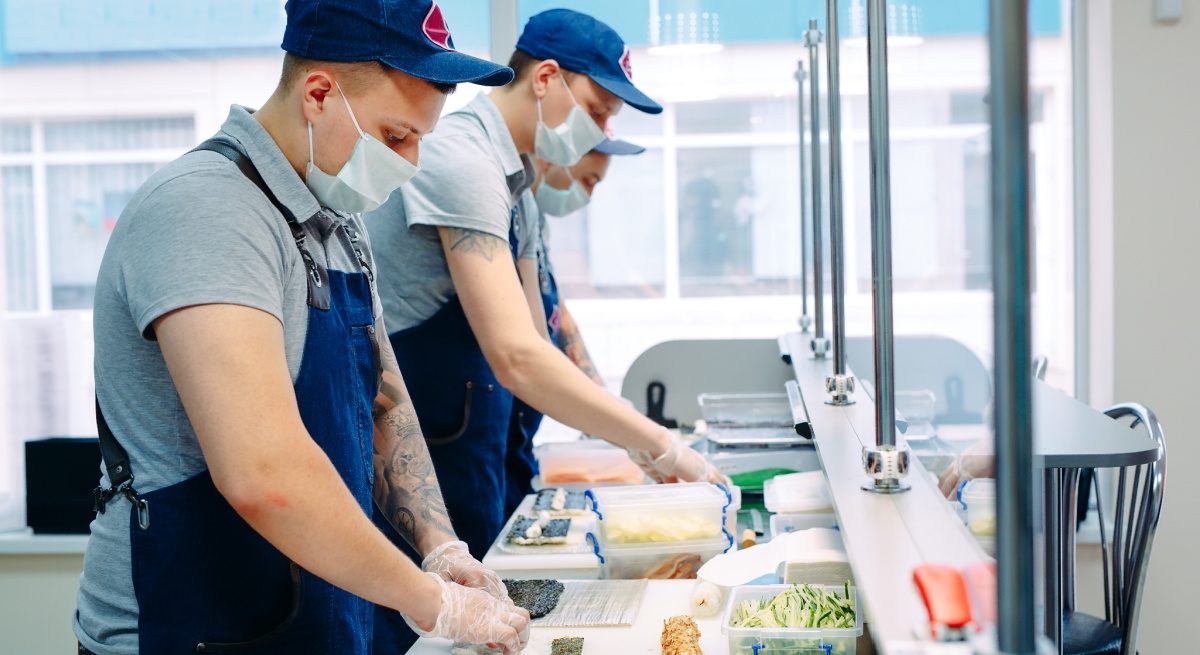How the Shift to Online-First in Response to COVID-19 Has Changed Talent Acquisition in the Restaurant Industry
4 Min Read By Kane Carpenter
While the combination of vaccine deployment and additional fiscal stimulus has meant that the restaurant industry can look forward to more encouraging market conditions in the future, there's still a lot of work that restaurants and the hospitality industry need to do in 2021 to make up for the dramatic employment shortfall triggered by lockdowns and stay-at-home orders.
How are restaurants going to compete for the level of talent needed to make a full recovery in 2021?
There are also political and economic factors in play as the restaurant industry builds towards recovery in 2021, with a $15 per hour minimum wage proposal making its way through the legislature. While the bottom-line implications such as labor and wage increases will have on restaurants and businesses are still being argued, the reality is that any disruption to cost structures introduces a level of uncertainty to the business environment.
It isn’t all doom-and-gloom, however, for the hospitality industry. According to Clarke Caniff Strategic Search’s 2021 Hospitality Jobs Report, the boutique executive search firm specializing in the retail, hospitality, and services sectors predicts that “the adoption of technological advances and the younger demographic’s propensity to want to travel means tourism, travel, and hospitality as whole will rebound strongly.”
But what does this all mean for hiring and recruiting in the restaurant and hospitality space in the near future? And how are restaurants going to compete for the level of talent needed to make a full recovery in 2021? The COVID-19 pandemic has accelerated certain trends in the restaurant industry that many establishments will have to adapt to, for example, digitization, increased demand on delivery and off-premises dining, and increased competitiveness of talent acquisition.
The Shift to Online-First Means Changes to Talent Infrastructure
As society has shifted its mindset and adapted to a world where it is more convenient to order takeaway or delivery instead of dining at restaurants, establishments that shift their talent infrastructure such that it includes more digitally-savvy and technology-focused staff members, who can capitalize on the shift to online first, will fare better than those that do not in the post-COVID environment. Many restaurants have realized the importance of a sound digital presence and a robust online-first approach to servicing customers and will need to hire team members who can help establish a competitive advantage on this front.
This shift in hiring mentality will market significant change in the kind of talent that restaurants and hospitality establishments build upon. In some instances, this trend opens up opportunities for individuals who previously had no access to the restaurant and hospitality industry by virtue of their skill sets.
In fact, according to Restaurant.org, “eating and drinking places are the primary component of the total restaurant and foodservice industry, which prior to the coronavirus outbreak employed 12 million out of the total restaurant and foodservice workforce of 15.6 million.” Therefore, changing the makeup of the restaurant industry workforce will be an interesting trend to keep an eye on for the foreseeable future.
Changing Mentality in Employee Benefits and Safety Requirements
The COVID-19 pandemic also catalyzed conversations around employee expectations for safety in the workplace, which is an especially relevant topic when considering a restaurant setting. Without the luxury of implementing a work-from-home arrangement for their staff members, restaurants have had to take particularly strong action to ensure the safety and health of their employees. Nevertheless, the reality of face-to-face interaction with customers has meant that restaurants and hospitality establishments will have to augment benefits and expectations during the hiring process to ensure that the restaurant adds hospitality space is still an attractive area of the economy to work in.
“Talent acquisition and managers at restaurants in charge of hiring will have to prepare for questions that pertain to their establishment’s response to the COVID-19 pandemic,” said Kristen Fowler, Practice Lead at Clarke Caniff Strategic Search. “Candidates will want to know what measures the establishment they are interviewing at took to protect its staff throughout the pandemic as it will help them make better decisions around where to invest their human capital.”
Investment in Employer Branding as Strategic Differentiator
In a world where so many consumers will order their food for delivery on their phones, from the most convenient restaurant with the best online reviews, the space for differentiation through on-premises ambiance and true customer service through in-person interaction becomes much narrower. In turn, restaurants and hospitality establishments will need to differentiate themselves via a different channel. If customers are shifting to a mindset that relies less on brand, the reality is that restaurants with the best food and reviews will win. And how does an establishment garner the best reviews? By offering the best food or product. And how does an establishment create the best food or product? By hiring the best chefs and talent available.
Restaurants will need to compete at the human capital level in order to take advantage of the shifting consumer mindset.
Restaurants in hospitality establishments will need to compete at the human capital level in order to take advantage of the shifting consumer mindset going into the latter stages of 2021 and beyond. this will require an investment in employer branding – how attractive the establishment is as a place to work. Only by investing in developing a best-in-class talent brand will restaurants and hospitality establishments be able to improve tenure, hang on to the best employees for longer, and have the opportunity to invest in the future of the business as a function of its human capital base.
“Businesses are just a collection of talented individuals creating great products or delivering great services. The COVID-19 pandemic has accelerated the restaurant industry's transition to digitization, which has meant that the industry, as a whole, has needed to rely more on the ability of its workforce,” says Victoria Tsai, Marketing Manager at Daggerfinn, a strategic employer branding consultancy. “We should start to see more establishments focus on the employee experience as a point of differentiation.”


